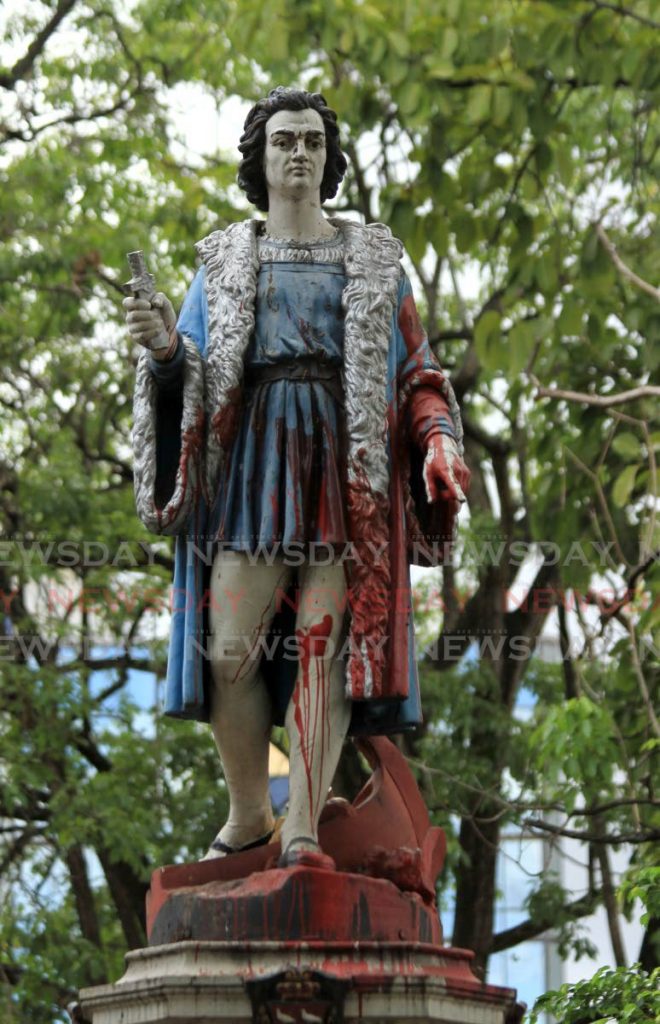‘The great Columbus’ and Creole forebears

THE EDITOR: It is interesting to note how much the opinion about Christopher Columbus, put forth by those who tediously advocate for the removal of his statue, differs from that of our Creole forebears. I refer in this instance to JJ Thomas.
As historian A de Verteuil writes, “John Jacob Thomas was born in 1840 the son of freed slaves, somewhere in central Trinidad. His parents were poor and he seems to have been largely self-educated, eventually becoming fluent in English and French (as well as patois) and with some proficiency in Latin. He was a teacher in a ward school and eventually became the headmaster of the San Fernando Borough School and finally was appointed secretary to the Board of Education.
“In 1869, after three years of dedicated research, he had published The Theory and Practice of Creole Grammar and four years later he read a paper On Some Peculiarities of the Creole Language before the Philological Society in London, and was subsequently elected a member.
“In 1888, after a tour of inspection, James Anthony Froude, the English historian, published a negrophobic book, The English in the West Indies, which Thomas refuted and attacked in his book Froudacity, published in 1889.”
In that book Thomas states, inter alia:
“History, as against the hard and fast white-master and black-slave theory so recklessly invented and confidently built upon by Mr Froude, would show incontestably –
(a) that for upwards of two hundred years before the Negro emancipation, in 1838, there had never existed in one of those then British colonies, which had been originally discovered and settled for Spain by the great Columbus or by his successors, the conquistadores, any prohibition whatsoever, on the ground of race or colour, against the owning of slaves by any free person possessing the necessary means, and desirous of doing so;
“(b) that, as a consequence of this non-restriction, and from causes notoriously historical, numbers of blacks, half-breeds, and other non-Europeans, besides such of them as had become possessed of their ‘property’ by inheritance, availed themselves of this virtual licence, and in course of time constituted a very considerable proportion of the slave-holding section of those communities;
“© that these dusky plantation owners enjoyed and used in every possible sense the identical rights and privileges which were enjoyed and used by their ‘pure-blooded’ Caucasian brother slave owners. The above statements are attested by written documents, oral tradition, and, better still perhaps, by the living presence in those islands of numerous lineal representatives of those once opulent and flourishing non-European planter-families.”
Those who have ears, let them hear.
STEVE ESCALIER
via e-mail

Comments
"‘The great Columbus’ and Creole forebears"